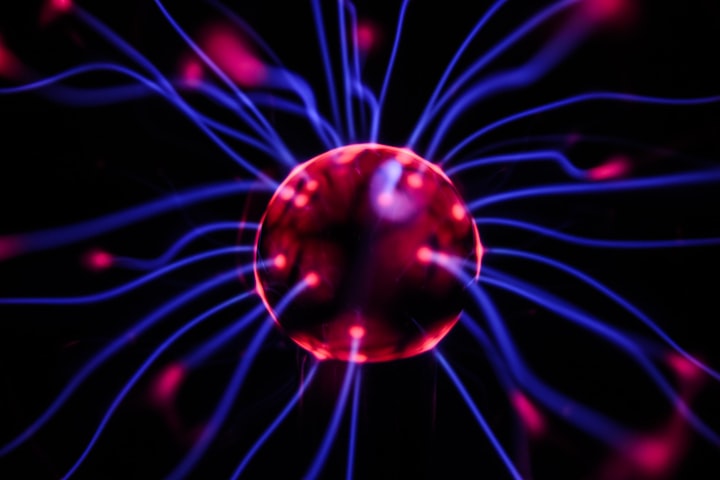Psychology: The Neuroscience Perspective on Human Nature
Neurotransmitters are chemicals that transmit signals from one neuron to another through synapses. They do this by releasing neurotransmitter molecules into the synaptic cleft.

Neurotransmitters are chemicals that transmit signals from one neuron to another through synapses. They do this by releasing neurotransmitter molecules into the synaptic cleft. These neurotransmitters then bind to receptors on the post-synaptic membrane, causing changes in ion channels and other cellular processes.
Neurons communicate with each other via chemical signaling. This communication occurs at synapses between neurons. A synapse is where two neurons connect and release neurotransmitters. When a signal is sent from one neuron to another, it travels across the synapse and causes the second neuron to react. The neurotransmitters that travel across the synapse attach to receptor sites on the receiving neuron. Once attached, they change the activity of the receiving neuron.
There are many different types of neurotransmitters. Some of these include acetylcholine, dopamine, serotonin, norepinephrine, GABA, glutamate, glycine, histamine, and tyrosine. Each type of neurotransmitter has its own unique function.
The brain consists of billions of neurons. Each neuron could have hundreds of connections with other neurons. In fact, the number of connections between neurons is much greater than the number of neurons themselves.
The human body carries about a hundred billion cells. Of those, only 10% are neurons.
The brain controls the whole lot we suppose, sense, and do. It is responsible for our emotions, thoughts, memories, personality traits, and behavior.
Certain types of neurotransmitters
1. Neurotransmitters
Neurotransmitters are chemicals that carry signals between neurons in the brain. There are many different neurotransmitters that play a role in our behavior, moods, emotions, memory, learning, and much more. They are released from presynaptic terminals into the synaptic cleft where they bind to receptors located on the postsynaptic membrane. This causes changes in the electrical activity of the neuron.
2. Dopamine
Dopamine is a neurotransmitter that plays a major role in motivation, pleasure seeking, reward, addiction, and movement. In humans, dopamine is associated with feelings of euphoria, love, lust, and other positive emotions.
3. Serotonin
Serotonin is a neurotransmitter that is responsible for regulating mood, appetite, sleep, pain perception, sexual arousal, and social interactions. It is also involved in the regulation of circadian rhythms, body temperature, blood pressure, and heart rate.
4. Acetylcholine
Acetylcholine is a neurotransmitter that is responsible for transmitting signals from one nerve cell to another. Acetylcholine is released into the synapse between neurons where it binds to receptors on the postsynaptic membrane. This causes the opening of ion channels and results in changes in the electrical potential across the synaptic cleft. These changes are then interpreted by the receiving neuron and result in a change in its state.
5. Glutamate
Glutamate is a non-essential amino acid that is used in many different metabolic processes in the body. Glutamate is the primary excitatory neurotransmitter in the brain, where it plays a role in learning and memory. In addition, glutamate is involved in numerous other physiological functions including muscle contraction and relaxation, regulation of blood pressure, and insulin secretion.
How Does a Neuroscience Perspective on Human Nature Realize?
1. Neuroplasticity
Neuroplasticity is the ability of the brain to change and adapt based on experience. This means that your brain can learn and develop throughout life. In other words, your brain is capable of changing its structure and function. This is the definitive proof that distinguishes humans from animals. Animals do not have this capacity. They are born with their brains fully developed and they cannot change them. Humans, however, can change their brains through learning and practice.
2. Brain-Body Connection
The brain and body are connected. When we think about how our bodies work, we should consider the fact that the brain controls everything. Our thoughts, emotions, actions, and behaviors are all controlled by the brain. We know that the brain is located inside the skull, but did you know that the brain actually sends signals out to the rest of the body? These signals help control organs like the heart, lungs, stomach, and even muscles.
3. Self-Awareness
Self-awareness is the awareness of oneself. It is the knowledge of who you are and where you come from. You may have heard people say that “you are what you eat”. This means that if you eat healthy foods, you will feel healthier. If you eat unhealthy foods, you will feel worse. This is because food affects your moods and mental state.
About the Creator
Writer Tiger
I write articles on Psychology, Technology, Blockchain and information. Most of my time is spent researching and getting the right information.






Comments
There are no comments for this story
Be the first to respond and start the conversation.